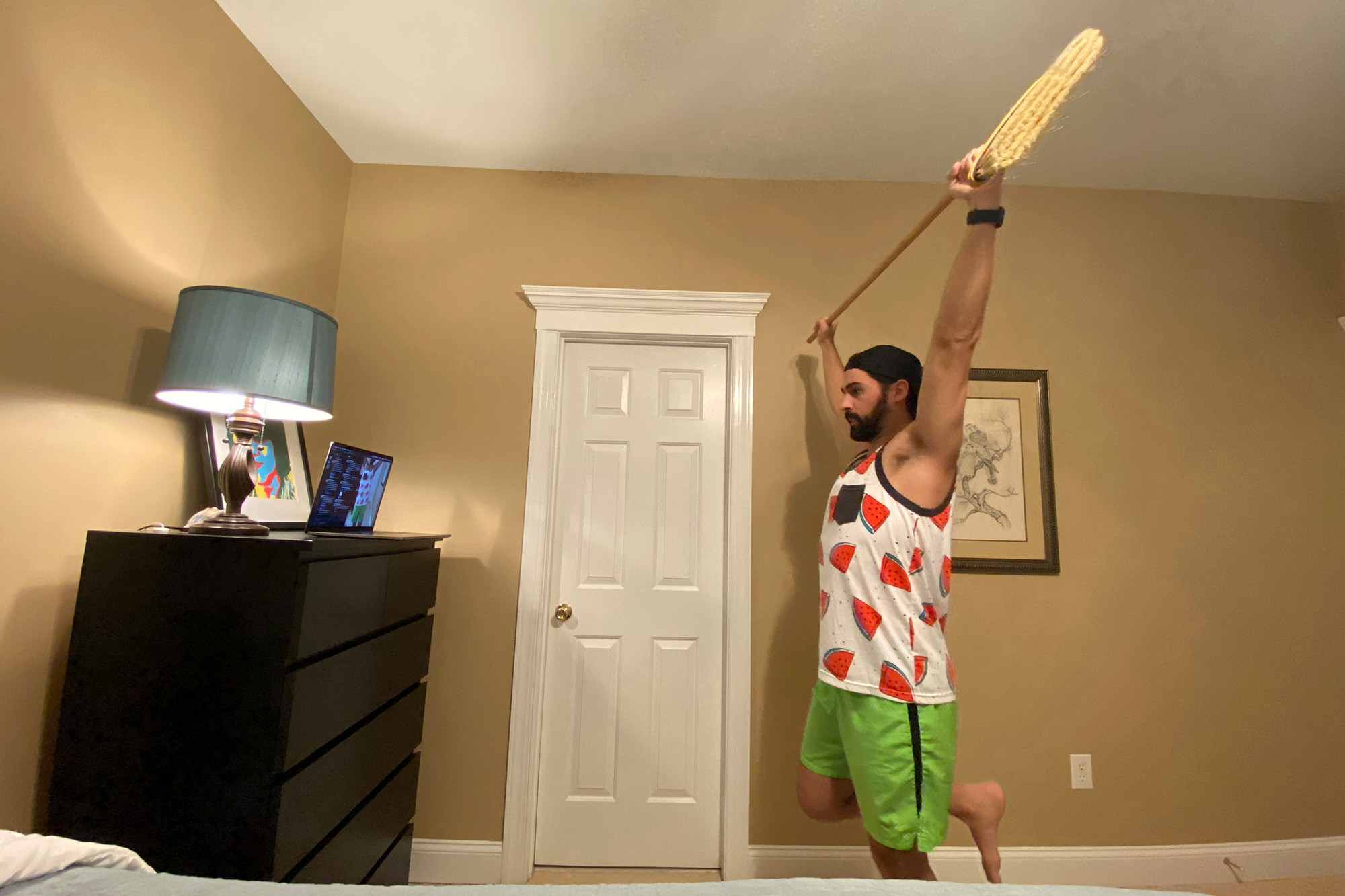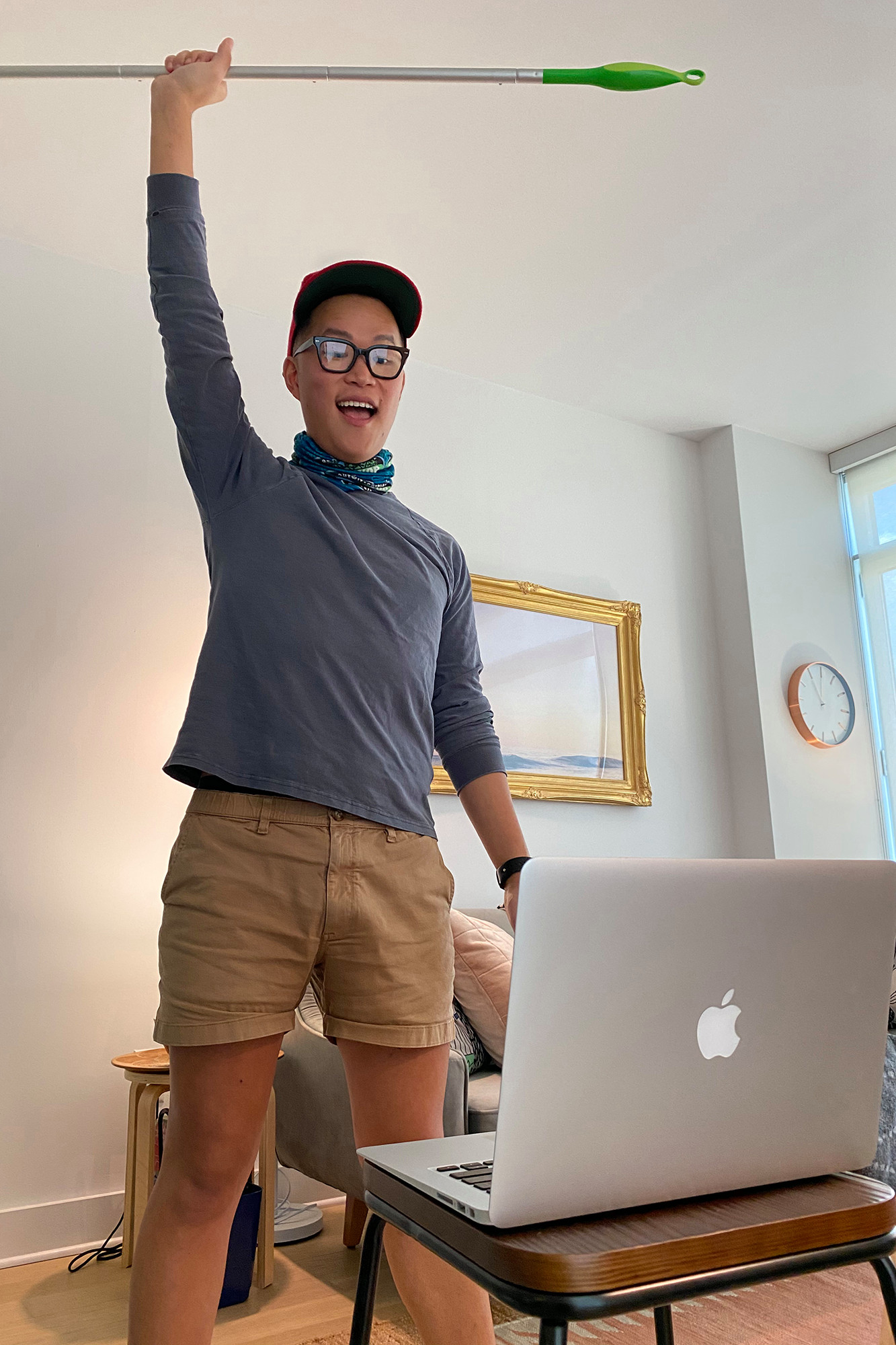More On: Coronavirus
Joe Biden Tests Positive for Wuhan Coronavirus Again
Aaron Rodgers, Green Bay Packers Fined for Violating COVID-19 Protocols
Shailene Woodley Defends Aaron Amid Rumored COVID-19 Quarantine Outings
Howard Stern: Aaron Rodgers Should Be Fired for 'Bulls--t' Vaccine Comments
Emilio Estevez Denies Being Anti-Vax After Exiting 'Mighty Ducks' Series
Instead of staying locked inside his Brooklyn home, 29-year-old software engineer Cameron Couch spent part of his quarantine on a remote island with total strangers, competing head-to-head with them in a variety of physical and intellectual challenges. Of course, this fictitious island only existed in the virtual realm — in reality, Couch was holed up …
Instead of staying locked inside his Brooklyn home, 29-year-old software engineer Cameron Couch spent part of his quarantine on a remote island with total strangers, competing head-to-head with them in a variety of physical and intellectual challenges.
Of course, this fictitious island only existed in the virtual realm — in reality, Couch was holed up with his family in North Carolina.
Welcome to the Quarantine Island, an online strategy game that began between friends and family during the coronavirus outbreak in March — and has since grown into a network of competitors across the US and Canada, luring interested players from as far away as the United Kingdom, Australia and New Zealand. Taking place in front of a live Zoom audience, it’s the latest example of how people still in lockdown can stay distracted while having fun and forging new personal connections. Played in nearly monthlong “seasons,” the Quarantine Island is gearing up for its fourth installment on Aug. 19.
“The game itself is super intense and anxiety-producing on its own,” said Couch. “[But] instead of being anxious about everything, my anxiety was pinpointed on to this one topic.”

Inspired in large part by “Survivor,” the Quarantine Island begins with 16 players divided into two teams that compete in daily challenges. They include a riff on a spelling bee, in which players need to spell words while holding a wall sit; someone holding a broom over their head for as long as possible, which can last 45 minutes; or simply solving an online puzzle.
The losing team then votes someone out via private Slack message in a “Banishment Ceremony.” Before long, contestants swap teams before competing individually, then the final three plead their case to a jury comprised of voted-off players as to why they should be the winner.
As with any good reality competition, there are also confessional videos and an after show, which takes place on Instagram Live, where fans can join in and discuss the game.



Quarantine Island
Courtesy



Quarantine Island
Courtesy



Quarantine Island
Courtesy



Quarantine Island
Courtesy



Quarantine Island
Courtesy



Quarantine Island
Courtesy



Quarantine Island
Courtesy



Quarantine Island
Courtesy



Quarantine Island
Courtesy



Quarantine Island
Courtesy



Quarantine Island
Courtesy



Quarantine Island
Courtesy
Despite its intensity, and its benefits of distraction, players told The Post they made new friends by taking part in the Quarantine Island — people with whom they remain in touch.
“We’re all scattered around and we’ve all talked about eventually meeting up one day and turning these digital friendships into a real thing,” said Couch, who played his season from June into July.
The still-lasting social connections also benefited Adam Daniels, a 31-year-old Long Island City resident, who played in the first and second seasons at a time when he lived alone.



“People that would have never known each other meet and develop cool relationships,” said Daniels, a “Good Morning America” producer. “The fact that it’s all done remotely is incredibly cool from a human standpoint.
“It’s created a camaraderie of weirdos around the country who have had this quarantine experience,” he said.
The Quarantine Island is the brainchild of 29-year-old Kelsey Krasnigor, a resident of Santa Monica, Calif., who works as a script coordinator on “Big Mouth.” She developed it as “something entertaining . . . to distract us,” she said of the original friends-and-family game circle. As it has grown, her concept has developed further, bringing in elements from other television competition series, like “The Circle,” a Netflix show in which players only communicate with each other digitally. In this game, it’s via a Slack channel or, on occasion, Zoom. Now, people who want a piece of the competition must apply via its Instagram page — a process that includes a questionnaire, and submitting two one-minutelong videos telling the gatekeepers about themselves and a funny experience they previously encountered.
All the while, the game has earned the attention of one of Krasnigor’s bosses, actor and comedian Nick Kroll — who promoted it on an Instagram story to his nearly 1 million followers and discussed it during an appearance on “The Bill Simmons Podcast” in May. Actress and comedian Mary Holland took part in the second season, and in a statement provided to The Post, said “I was mentally, physically and emotionally consumed by a game with people I had never been in the same room with.”
Even Krasnigor praises the game’s social perks.
“How cool, I get to walk away from quarantine like, ‘I have 30 new friends!’ ” she said. “Like, who’s making new friends in quarantine?”






















